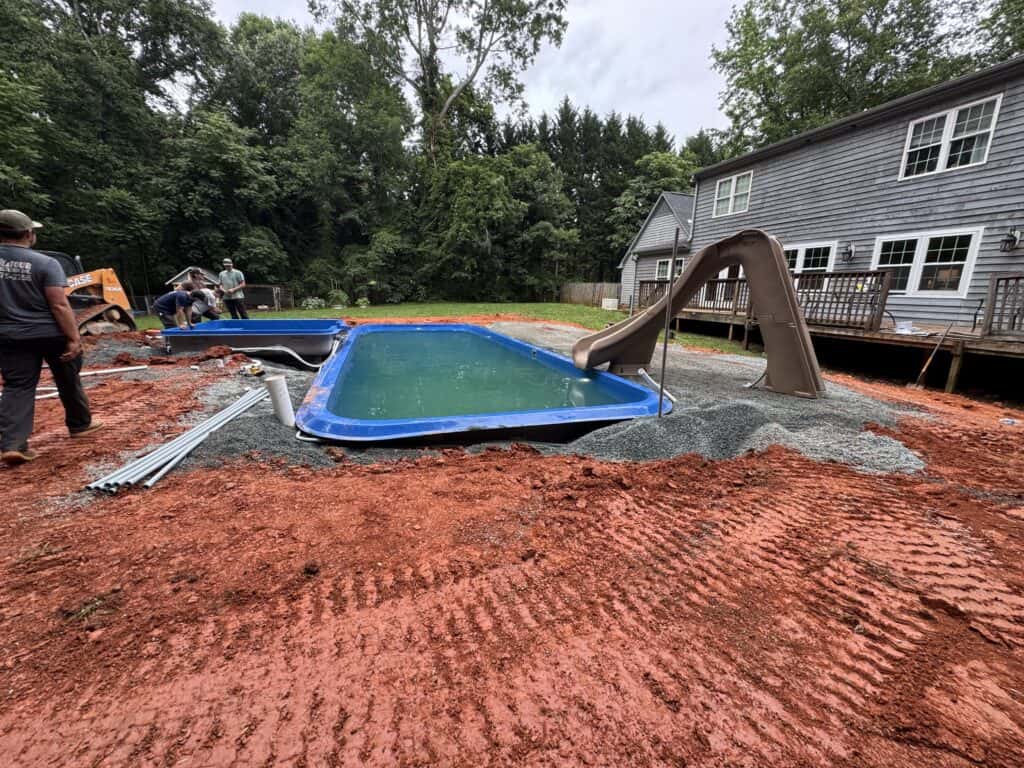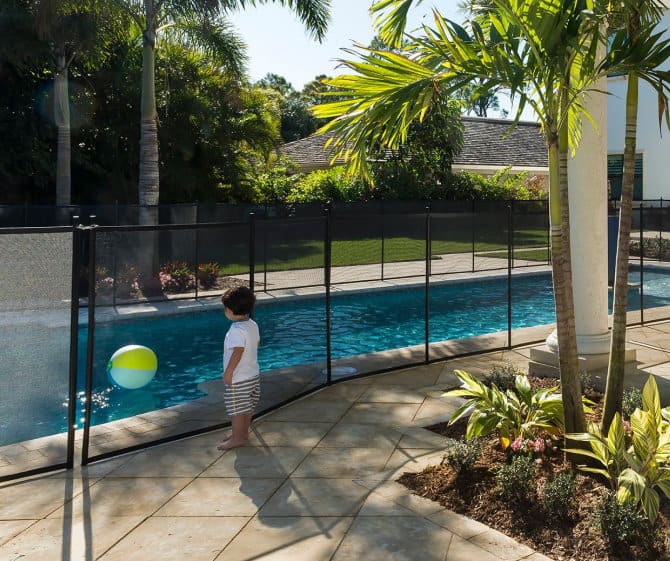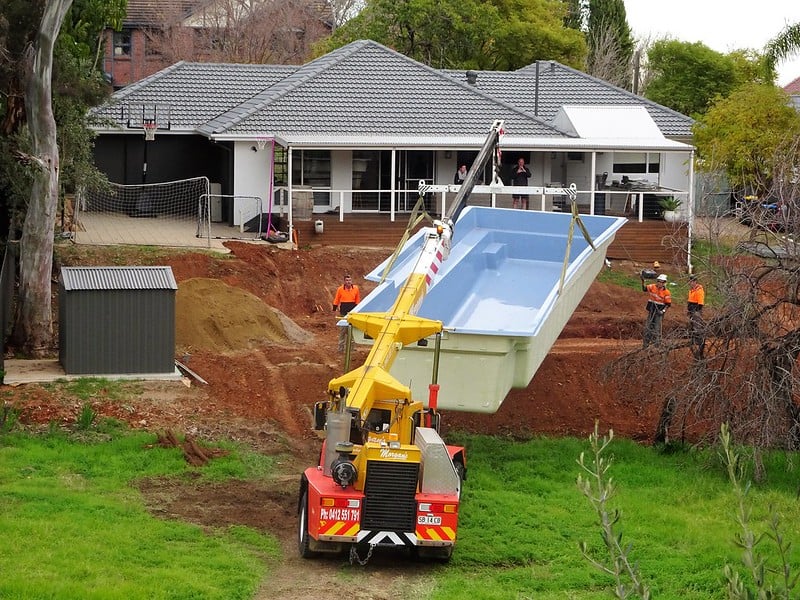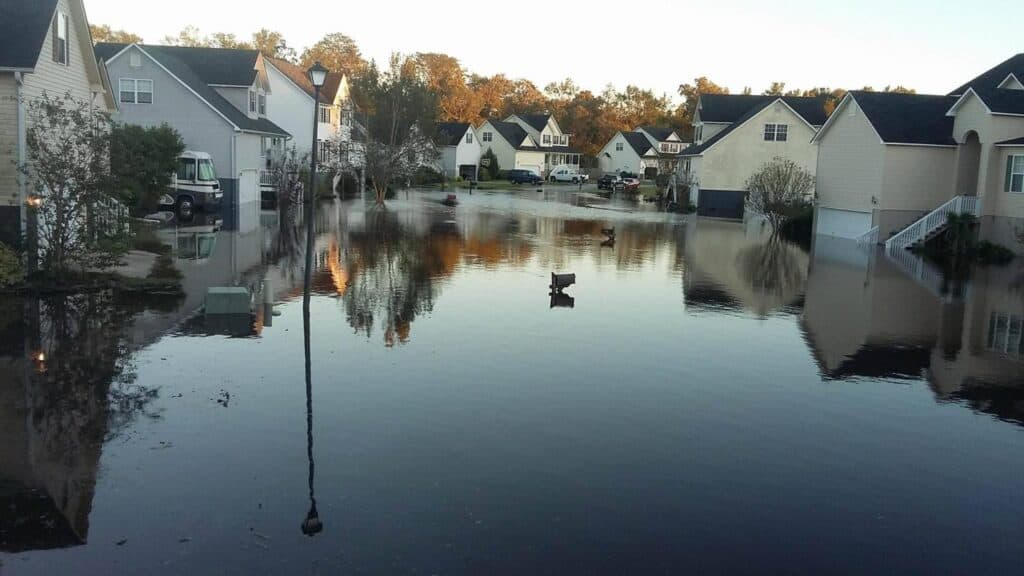Building a pool in North Carolina doesn’t just look like digging a hole and filling it with water – a lot of the time, it looks like navigating a complex web of safety regulations designed to protect your family and property. North Carolina pool building codes become especially critical when you consider the state’s vulnerability to hurricanes and flooding.
Understanding these regulations before you break ground can save you thousands in costly corrections and ensure your new fiberglass pool stands up to whatever weather comes your way. Let’s dive into what you need to know about creating a hurricane-ready backyard oasis that meets all code requirements.
Contents
- North Carolina Pool Code Essentials
- Statewide Swimming Pool Regulations in North Carolina
- Permits, Licensing, and Paperwork
- Fence and Barrier Rules for Homeowners
- Hurricane-Ready Fiberglass Pool Considerations
- Practical Compliance Steps for DIY and Contractor-Led Projects
- Taking Action Toward a Safer Backyard
North Carolina Pool Code Essentials
North Carolina pool building codes primarily follow the International Swimming Pool and Spa Code (ISPSC) along with Appendix V of the North Carolina Residential Code. These regulations establish minimum safety standards for residential pools, including barrier requirements, electrical specifications, and structural guidelines.

Local counties and municipalities may have additional requirements beyond state codes. Always check with your local building department before starting any pool installations across North Carolina.
The North Carolina pool building codes exist for good reason — they protect families from accidents and ensure your investment remains structurally sound, especially in hurricane-prone areas.
Statewide Swimming Pool Regulations in North Carolina
North Carolina enforces strict swimming pool regulations to protect safety and ensure proper construction standards.
These rules apply to both in-ground and above-ground pool installations.
By following these requirements, homeowners can avoid legal complications, stay compliant, and maintain a safe swimming environment.
Who Regulates Residential Swimming Pools in North Carolina?
Multiple state and local authorities oversee new swimming pool construction and ongoing maintenance to ensure compliance with building codes and safety standards:
-
North Carolina Residential Code (NCRC): Establishes statewide structural, electrical, and safety requirements for in-ground and on-ground pools.
-
North Carolina Department of Environmental Quality (NCDEQ): Regulates wastewater system components, ensuring pool drainage does not negatively impact the environment.
-
Local Municipalities and Counties: Cities and counties may have their own zoning restrictions and site plan requirements for pools, hot tubs, and spas.
Permits, Licensing, and Paperwork
Most North Carolina counties require a building permit for installing an inground pool. The permit application typically needs site plans showing the pool location, dimensions, and setbacks.
Projects exceeding $30,000 generally require a licensed general contractor in North Carolina. For fiberglass pools, electrical and plumbing permits are also necessary.
North Carolina Pool Permits: County and City Guidelines
- Raleigh, NC – ABCs of Pool Installation Information
- Mecklen County, NC – Residential Swimming Pools Information
- Johnston, NC – Pool Permitting Requirements
- Wake County, NC – Pool and Spa Regulations
- North Top Sail Beach, NC – Pool Permit Application Steps
- Cumberland County, NC – Residential Swimming Pool Permitting
- Onslow County, NC – Planning Pool Permits
- Guilford County, NC – Pool Permitting Process
- Durham, NC – Pool and Spa Permits and Applications
- High Point, NC – Pools, Spas, and Hot Tub Permit Information
- Brunswick County, NC – Pool Permits and Resources
- Havelock, NC – Pool Permit Application
- New Hanover County, NC – Pool Permit Questions and Answers
- Lincoln County, NC – Pool Permit Online Application
- Sanford, NC – Residential Pool Building Information
- Camden County, NC – Pool and Spa Building Permits
- Chapel Hill, NC – Online Residential Pool Permit Portal
- Garner, NC – Pool Permit and Inspections Portal
- Zebulon, NC – Pool and Spa Information for Homeowners
- Morehead City, NC – Swimming Pool Installation and Inspection Guidelines
- Gaston County, NC – Pool and Hot Tub Permit Application
- Cary, NC – Pools, Spas, and Hot Tub Permit Information and Application
- Catawba County, NC – Swimming Pool Installation Information and Permitting
- Holly Springs, NC – Pools and Spas Requirements
- Moore County, NC – Pool Permitting Checklist
- Yadkin County, NC – Pool Permit Application
- Cleveland County, NC – Pool Permit Application
- Craven County, NC – Swimming Pool Permit Application
- Black Mountain, NC – Pool Permitting Information
- Currituck County, NC – Swimming Pool Guide
- Archdale, NC – Pool Permit and Requirements Overview
- Warren County, NC – Residential Pool Permit Application
- Davidson County, NC – Permit for Pools Application
- Franklin County, NC – Pool Permit Portal
- Stokes County, NC – Pool Permit Application
- Carrboro, NC – Pool Permit Information
- Dunn, NC – Residential Pool Guide
- Monroe, NC – Residential Pool Application and Additional Documents
- Henderson County, NC – Pool Permit Questions and Answers
Health department approval may be required in some counties, particularly for drainage plans. Having your paperwork in order before breaking ground prevents costly delays.
Fence and Barrier Rules for Homeowners
North Carolina mandates that residential pools have barriers at least 48 inches tall measured from the outside. The maximum clearance between the bottom of the barrier and the ground is 2 inches on solid surfaces or 4 inches on grass.
Gates must open outward away from the pool and be self-closing and self-latching. The release mechanism must be at least 54 inches from the bottom of the gate or placed on the pool side.

Barrier openings cannot allow passage of a 4-inch diameter sphere, preventing small children from squeezing through.
Common Mistakes to Avoid
- Ignoring slopes: Many homeowners don’t account for yard slopes that might reduce effective barrier height
- Improper gate hardware: Using standard hinges instead of self-closing ones fails inspection
- Overlooking above-ground requirements: Above-ground pools over 48 inches tall may use the pool wall as part of the barrier, but still need compliant access points
Tips for a Seamless Inspection
Pre-measure everything before the inspector arrives. Remove any furniture, equipment, or landscaping features that could help someone climb over the barrier.

Schedule your fence inspection early in the process to avoid delays in subsequent construction phases. This proactive approach keeps your project timeline on track.
Hurricane-Ready Fiberglass Pool Considerations
Fiberglass pools offer excellent hurricane resistance due to their one-piece flexible shell design. Unlike concrete pools, they can flex slightly during ground movement without cracking.
Proper installation is crucial for hurricane readiness. The pool shell must be properly anchored to prevent floating during high water tables or flooding events.

Building codes in coastal North Carolina counties often have additional requirements specifically addressing high-wind zones and flood-prone areas.
Anchoring Strategies for Storm Resilience
- Enhanced backfill materials: Crushed stone provides better drainage and stability during storms
- Hydrostatic relief valves: Prevents pressure buildup beneath the pool during flooding
- Concrete collar systems: Additional anchoring against uplift forces in severe weather
Recommended Pool Deck Features
Slip-resistant surfaces provide safer footing during and after storms when surfaces are wet. Properly designed deck drainage channels direct heavy rainfall away from the pool and home foundation.
Hurricane-rated pool covers can protect the pool from debris during storms and serve as an additional safety barrier. These features complement your fiberglass pool’s inherent storm resistance.
Practical Compliance Steps for DIY and Contractor-Led Projects
If you plan to handle your own construction, contact your local building department early to understand all requirements specific to your property. Many coastal counties have stricter North Carolina pool building codes than inland areas due to hurricane risks.
Call 811 before digging to have underground utilities marked. Electrical work must comply with Article 680 of the National Electric Code, which has specific requirements for pools. Learn more about what North Carolina 811 does to protect underground utilities by visiting them online.
You should also create a compliance checklist covering barriers, entrapment protection, electrical safety, and structural requirements to track your progress.
Planning the Installation Timeline
Allow 2-4 weeks for permit approval before scheduling delivery of your fiberglass pool shell. Schedule excavation and utilities early, allowing time for inspections before the pool arrives.
Plan installations outside hurricane season (June-November) when possible to avoid weather delays, and as much as we love a good weather forecast – we love helping people get their poll installation plans started in the cold winter months. This timing consideration is especially important for coastal North Carolina properties.
Choosing Reputable Manufacturers
Select fiberglass pool manufacturers (like Pool Brokers USA!) whose products meet or exceed North Carolina building codes. Quality manufacturers provide detailed installation guides specific to hurricane-prone areas.
Ask for local references and examples of installations that have weathered previous storms. A manufacturer’s warranty should cover structural integrity even in challenging weather conditions.
Taking Action Toward a Safer Backyard
Meeting North Carolina pool building codes creates a safer environment for your family while protecting your investment. Focus on proper barriers, electrical safety, and hurricane-ready installation techniques with the help of a pool safety checklist.
Fiberglass pools offer unique advantages in hurricane-prone areas when properly installed according to code requirements. Their one-piece construction and flexibility make them resilient during storms and flooding events.
Ready to explore hurricane-ready fiberglass pool options that meet North Carolina building codes? Request a Quote with Pool Brokers USA to find the perfect pool that combines safety, durability, and compliance for your North Carolina backyard.
